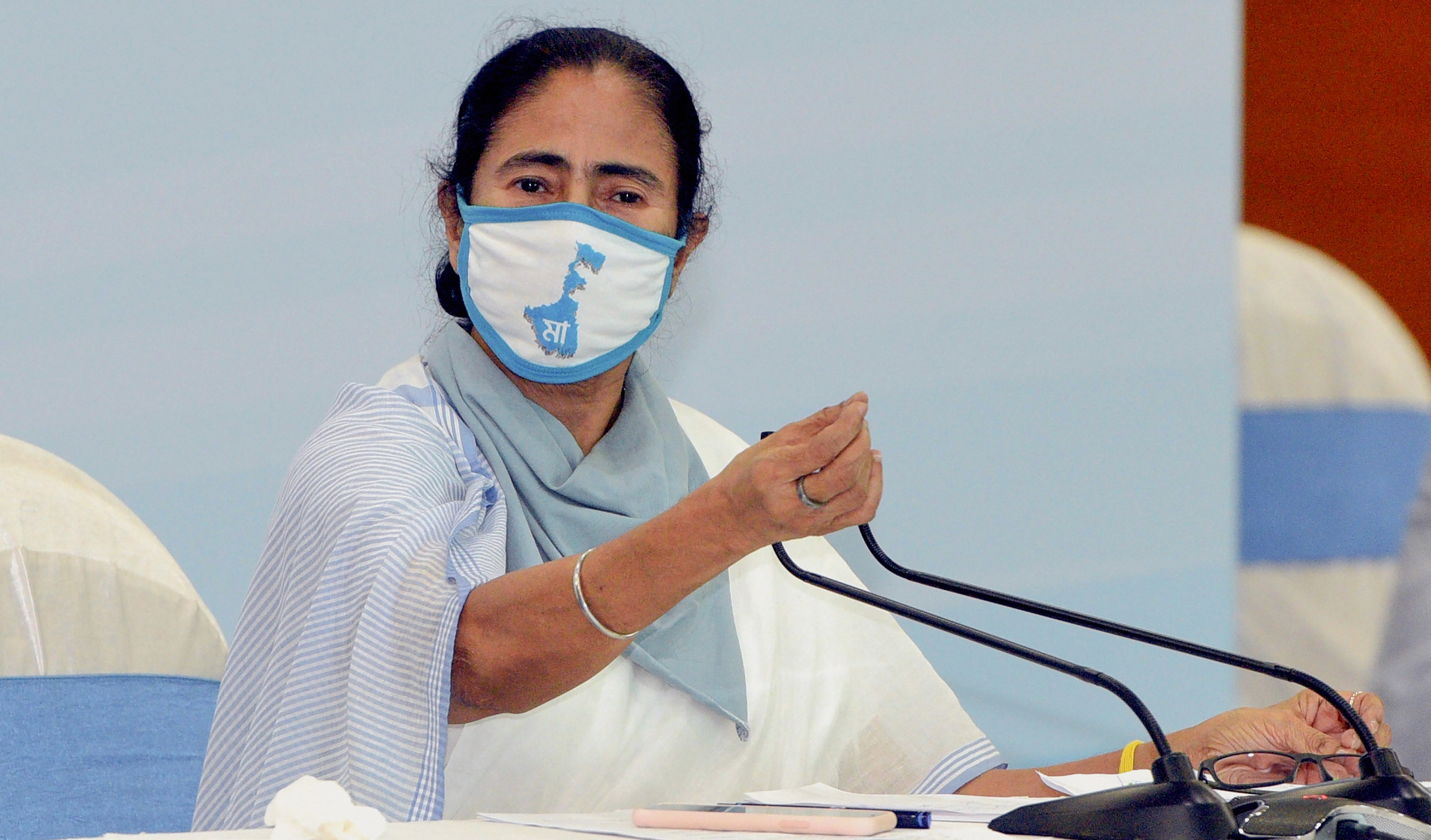
Mamata tries to get even with BJP, declares sops for Dalits, Hindu priests, adivasis
A Dalit Sahitya Academy, revamping the Hindi Academy, stipend and houses for Hindu priests are some of Mamata Banerjee’s promises to counter BJP’s Hindu-Hindi-Dalit plank in the state of Bengal, which goes to polls in about six months.

A Dalit Sahitya Academy, revamping the Hindi Academy, stipend and houses for Hindu priests are some of Mamata Banerjee’s promises to counter BJP’s Hindu-Hindi-Dalit plank in the state of Bengal, which goes to polls in about six months.
BJP national president J P Nadda last week accused Banerjee of being “anti-Hindu”, signalling that his party would continue to push for aggressive Hindutva as it hopes to come to power in the state for the first time.
The party’s expectation was buoyed by the spectacular gains it made in the state during the Lok Sabha elections, increasing its tally from two in 2014 to 18 in 2019 — a colossal jump from 16.6 percent votes to 40 percent in five years time.
The impressive performance was based on inroads the saffron party has made in the pockets dominated by Dalits, Hindi-speaking and Adivasi people, largely riding on the Hindutva wave. The party’s vote share among Dalits in West Bengal increased from 20 percent in 2014 to 61 percent in 2019. Similarly its vote share among Adivasis increased from 11 percent in 2014 to 58 percent, says a CSDS survey.
Trinamool Congress is aware of this shift of vote and since then the party have been taking initiatives to win back the support of Dalits, Adivasis and the Hindi-speaking community, while also trying to deflect the BJP’s anti-Hindu barb at it.
The slew of announcements the state government made on Monday (September 15) was part of that win-back strategy, though the chief minister asserted there was no “political” intention behind the announcements.
On ‘Hindi Diwas’ on Monday, the Chief Minister announced revamping of West Bengal Hindi Academy with inclusion of more members, headed by former TMC MP Vivek Gupta to promote the language.
Last year, on Hindi Diwas, in response to a tweet from Amit Shah appealing to people to use the “widely-spoken” Hindi language more often, Banerjee had retorted saying, “We may learn many languages but we should never forget our mother-language.”
Earlier that year at a public meeting at Kancharapara in North 24-Parganas, the chief minister stated that those living in West Bengal would have to learn to speak in Bengali. Her latest move to revamp the Hindi Academy is seen as a climb down from that hard line.
The West Bengal Hindi Academy was set up by her government in 2011 comprising 13 members. Now it will be restructured with 25 members.
Coinciding with the government’s announcement, even the TMC formed a Hindi cell with party’s Rajya Sabha member Dinesh Trivedi as its chairman and Vivek Gupta as its president to reach out to the state’s about 13 million Hindi-speaking people. The cell will have a three-tier structure with coordination committees at the state, district and block levels.
On Tuesday (September 15), the Bengal government moved the National Green Tribunal (NGT) to relax its order which banned holding of Chhath puja rituals at the iconic Rabindra Sarobar Lakes in south Kolkata.
Chhath is the most prominent festival in Bihar and certain regions of Uttar Pradesh. Biharis constitute the major chunk of Hindi-speaking population in Bengal.
The state government further announced setting up of Dalit Sahitya Academy to promote Dalit literature and to make people aware of the “challenges faced by the Dalit and refugees for centuries.”
The BJP is trying to woo the state’s Dalit Matua community, most of whom are settlers from erstwhile East Pakistan and today’s Bangladesh, with its campaign projecting the Citizenship (Amendment) Act as shield to protect Hindu refugees. The TMC had earlier this year launched a refugee cell to woo the community.
“We have decided to set up Dalit Sahitya Academy with litterateurs from the community. Other backward groups will also be included. There will be representation of people from communities including Namasudra, Matua, Baghdi, Bauri, Dom and Majhi,” Banerjee said.
Award winning activist-writer and pioneer of Dalit literature in the state Manoranjan Byapari will be the chairman of the academy.
Only last month, the state government considering his age and health condition, posted Byapari to a less rigorous job at a library in the outskirts of the city giving him respite from the arduous job of a cook at Helen Keller Badhir Vidyalaya, a school for the specially-abled children in Kolkata.
The state government is also planning to set up a Matua Development Board.
The chief minister also announced a monthly honorarium of Rs 1,000 and houses for Hindu priests facing poverty. In the first phase, 8000 priests will get the benefits.
Welcoming the government’s announcement, state secretary of the Paschim Banga Rajya Sanatan Brahman Trust Sridhar Mishra said shortly it would furnish another list of Hindu priests facing financial hardship.
The trust is the apex body of the state’s estimated 2.73 lakh Hindu priests.
Last year, the Kolkata Municipal Corporation (KMC) introduced stipends for Hindu priests who conduct the last rites at the seven crematoria in the city. As per the stipend scheme, the KMC pays every priest a stipend of Rs 380 per body on which the last rites are performed.
In 2012, Banerjee had announced a monthly stipend of Rs 2,500 for 30,000 imams and muezzins in the state, triggering allegations of minority appeasement against her government from the BJP and other Hindu rightwing organisations.


